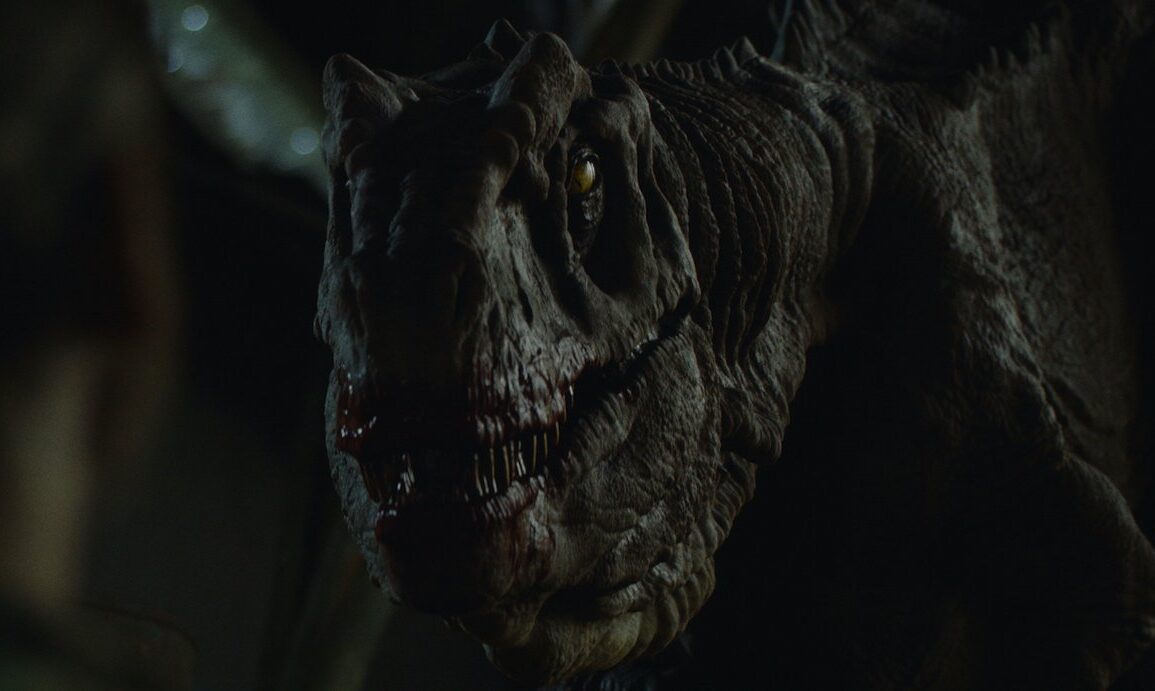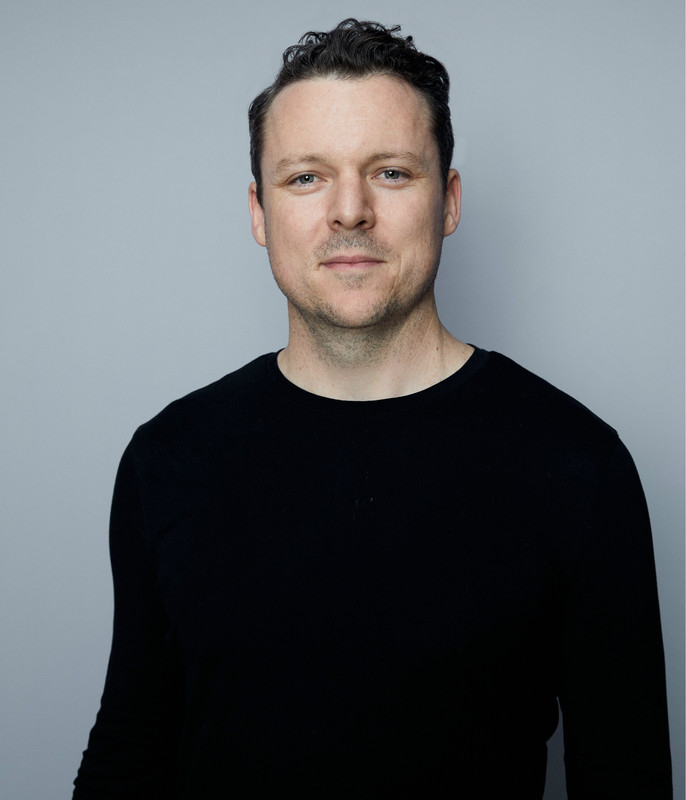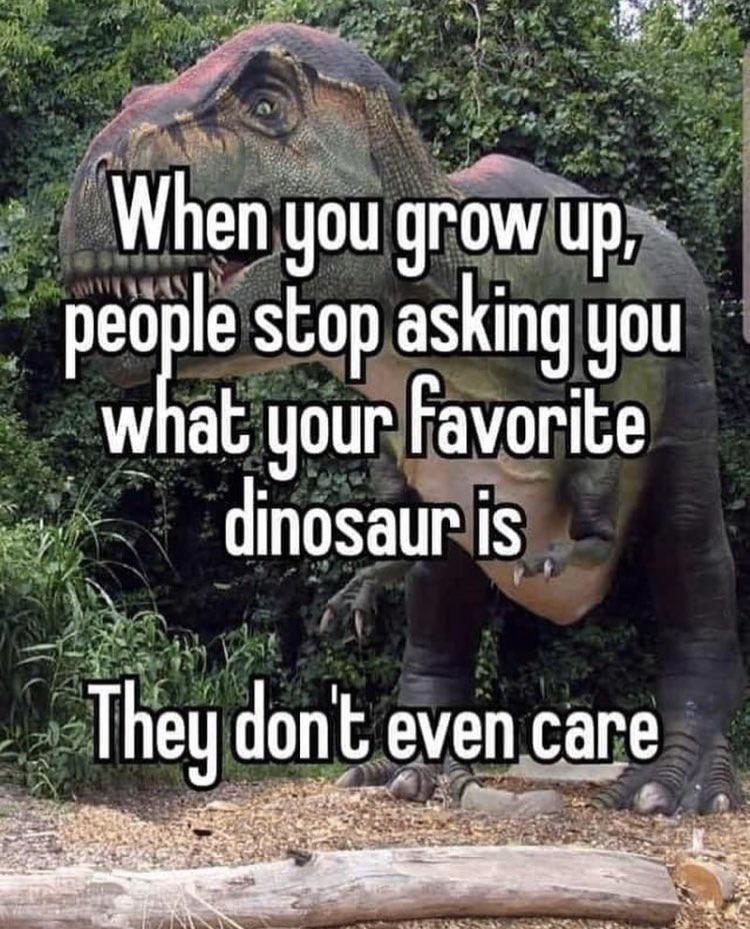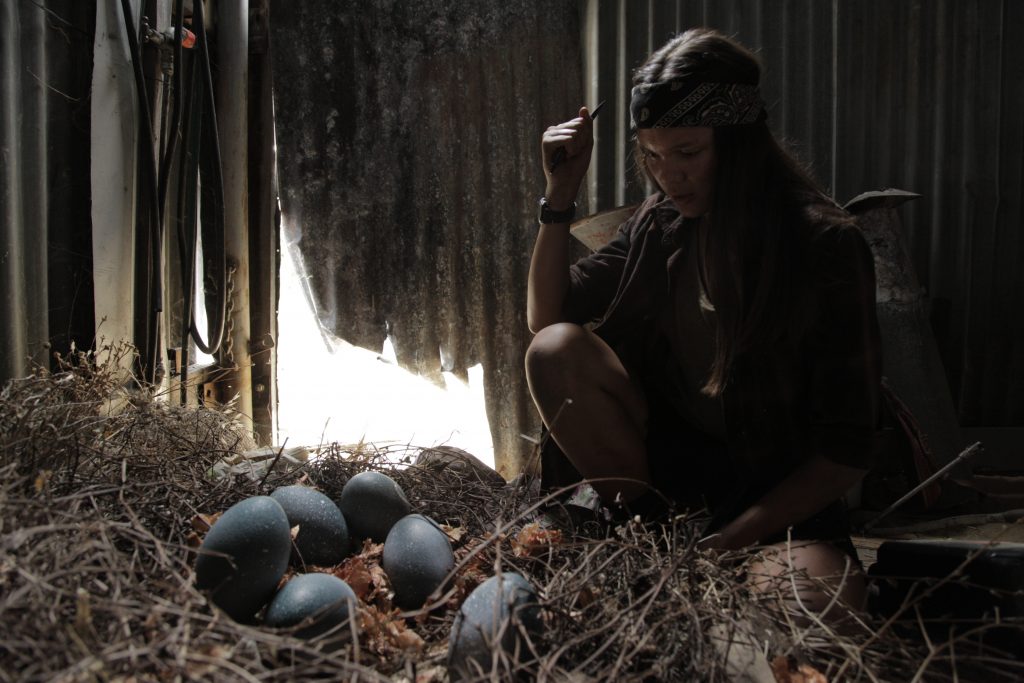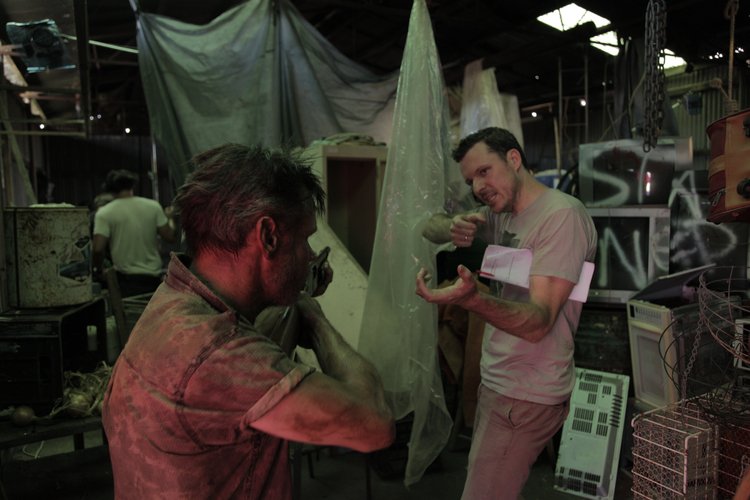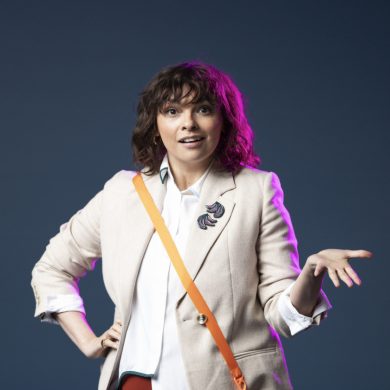Indie filmmaker Alex von Hofmann wanted to make an Aussie dino flick, and with his impressive genre short Evie, he has managed to do exactly that. Dino’s in the outback is an inventive idea, one that has your mind running with possibilities (as you’ll see in this interview), and Evie hints at those notions of what a feature film might bring.
Evie screens at Flickerfest around Australia, and with audiences getting to see this big screen treat with an audience, it was a great time to chat with Alex about his filmmaking inspirations, creating a CGI dino on a budget, what his favourite dinosaur is, and working with producer extraordinaire Kate Separovich.
Evie plays as part of Flickerfest across Australia. Check the website for dates in your state.
Evie is really good. Onscreen at least, it doesn’t feel like that was a struggle to make. But I’m sure it was. What was it like bringing dinos in the outback to life?
I guess I think about Evie in two parts. There was the production part of it which felt great. Kate Separovich, the producer, brought together an amazing crew. We were both really stoked with the crew that we got together. They’re all from Perth. And we found a great cast, they all came together really well from Perth. And it all felt like it just happened quite smoothly, the shoot itself. Even though we were dealing on a very low budget, it sort of felt like a big set. So that was great.
And we got into editing and then part two of Evie came up along which was we planned for this dinosaur to be in this film. And I’ve done a lot of work shooting quite sparingly to make sure that the dinosaur wouldn’t be too big a task in post. I really was influenced by Alien, I shot it quite dark, sparingly backlit or edge-lit, that was the whole plan. But then to bring this dinosaur to life to the quality that we wanted turned into close to a two-year saga of work, working with a lot of different people to bring it together until we finally found like the missing piece of the puzzle which was Ben Wotton. He’s a VFX compositor in Sydney and an absolute genius with this stuff. And he happens to also just be a massive dinosaur fan. And , we got to talking and he and I just got to work over COVID lockout. He did the majority of the post[production], but the one thing that he isn’t is an animator. And so I ended up having to do a little work. And I learned that the 3D software to do that. We use Maya. And he gave me a lot of pointers, lots of coaching, and we got it done over about three months.
It looked so impressive. Is it completely CGI? Is it completely a digital creation with no physical aspect to it?
Yeah, it is.
That astounds me in a lot of ways. Because I’m sitting there, watching, and I’m like, “Wow, the model that they’ve created here looks so good. It looks tangible. Like he shots of the T Rex in Jurassic Park towering over everybody, they’ve they’ve done that on a budget.” And that’s exciting. But to know that it’s digital is far out. How did you get that tangible feeling to it?
Yeah, that was the real challenge. And I think that’s why it took us so long to get this thing done. We all had in our mind – this is Kate, myself, and Lukas [William Martin] the writer – we all had in our mind that what we wanted was a Jurassic World quality dinosaur in this film. And to get that, it just has to look and feel totally real. And that was the thing I kept talking to Ben about was “We’re going to do all this work. Are we going to be able to get it there?” And he rendered out a test shot and blew all of our minds with how good it could look. So we were able to go forward with some confidence that we were going to get it there. And that’s just his lighting and his compositing and the texture work and all the sort of materials that he’s able to put on those models that just make the light and the little ridges and bumps just feel real. It’s great.
It’s wonderful. I don’t know if you’ve seen this meme, but there’s a meme out there on the internet where when you become an adult and people tend to ask you, “How’s your day going? What’s your favourite food?” and stuff like that. But then we kind of reach a point in our lives where we stop asking each other what our favourite dinosaurs are. You ask kids that and then as soon as you hit twenty, you stop asking people that. So, what’s your favourite dinosaur?
I suppose this all started with the velociraptors in Jurassic Park, that’s where it all started for me. I, like every kid that saw that film, went through a stage where I wanted to be a paleontologist, and those are the ones that really stick out. But we talked for a while about this being an Australovenator which is the Australian raptor. And that’s a neat looking dinosaur, and it would have been cool to have that dinosaur in this. But we couldn’t find a model that – like we first started off trying to make one and then realised we weren’t going to get it to where it needed to be, and then we couldn’t find an existing model. In the end, we got an Allosaurus.
We found this one model, and then then Ben tweaked it because the idea was that our dinosaurs aren’t one of the classic species of dinosaurs. These are slightly mutated through bringing these things to life in the future through whatever Jurassic Park style experiments they’re going to do. So yeah, it wasn’t a straight take on any of the species.
Where do you start with the world-building for this? And when you’ve got a short, do you have the idea that it’s going to be just a short or kind of teasing the beginning of a feature?
This was always meant to be a teaser or promo for a feature. That was where it started out. Luke wrote the script and the first drafts that I saw were really great, and I loved the idea instantly. But then we started working on how does this film feel self-contained but still feel like it’s part of a much bigger story? We did a few drafts together where he and I discussed what we could achieve in this short film that would feel that would be awesome, and people would leave the cinema satisfied, but at the same time be a great selling tool for the feature.
We talked a lot about how much of the world before the apocalypse do we want to hint at? We talked a lot about having big signs out in the landscape for what used to be a kind of theme park that you could go to Jurassic Park style in the outback, and then allude to the fact that the world has collapsed because of some sort of disaster, and now those dinosaurs are free in the landscape and they’re now once again the apex predators. But how much of that is distracting from a short film? How much of that adds to it? There was a lot of back and forth plus all that stuff is money and it’s hard to put on screen on a low budget, so we had to be sparing.
It’s like one of the last things that Colin Barnett (previous WA Premier) had said a few state elections ago. And he was like, “Oh, we want to build this zoo out in the middle of Bullsbrook” and stuff.
(laughs)
And I remember at the time thinking, “What happens if elephants get out? What happens if tigers get out?” And this feels like a natural evolution of that. “What happens if dinosaurs get out into the outback?” It’s exciting. I love it.
There’s so much fun to have with it. And that’s what the feature is gonna be. It’s gonna be to what degree can we play with that idea? And how far can we take it?
I want to see raptors running alongside kangaroos. That imagery is just burned into my mind now. Talking about the dinosaurs kind of overshadows one of the aspects of this film which is the titular character of Evie. Can you talk about the casting of Melody [Rom] and how you went about making sure you’ve got the right person for the role? Because the film does hang on her performance quite a bit.
Yeah, definitely. So this is something I hadn’t done before. But we approached a friend called Renato Fabretti who does casting, and he helped us bring together a whole bunch of potentials for each of the roles. And that’s just because he works with a lot of actors in Perth. He was able to help us shortlist some people to look at, which is kind of like having a casting agent. For a short film, this is really unusual but it was super helpful, it was great.
And on that list of potentials for the Evie character was Melody and a couple things about her straight away – she’s striking, like the camera absolutely loves her. And she has quite a good career as model going. And she’s also got that wonderful look where you can’t entirely place where she’s from in the world or where her parents are from which I always think is great. And then when we got to seeing her act, she’s just really subtle and understated in her approach and fascinating to watch, her choices that she makes throughout each of the scenes. So it became a really easy choice. Once we got into it, she was the clear choice to go with. And I just can’t wait to see what she does next. I know she’s been focusing on modelling quite a lot, but she could go really far with an acting career, I think. So I’m hoping that she does a bit more of that.
She really feels quite comfortable onscreen, and really feels comfortable in this kind of world as well in finding her path to getting the supplies to help her dad. It is both a simple narrative, but there is a lot that hinges on her emotionality and her power of getting through a difficult world. And she does it so well, like it’s just wonderful. What direction did you give her onset?
As you say, she didn’t have a lot of classic scenes where she could play off another actor, there were only a couple in there for her. A lot of it was about giving her goals to get through for each of the scenes. And while a lot of it’s like, “You need to go into that bus and you need to collect some maggots, you need to go look at that picture,” it was sort of like, “Well, those maggots are going to potentially save your dad’s life and you got to treat those things with respect. And then you’re going to go have a moment with this photograph in the bus that really reflects the childhood that you’ve missed out on.” So it was just trying to give her motivations for each of those moments to make more of the actions that she was doing, and she ate all that stuff up so she did a really good job with all of that.
I like the shorthand you’ve got in there. As you’re saying, there’s a photo to show the history that’s on there. How important for you, in telling this story in a short film, is that shorthand?
I love it. Luke and I talked a lot about those moments because they were what grounded the whole film. Considering that it is otherwise quite a simple story, we really needed to, through devices like the photo, give the world a bit more of a grounding, make it feel like there was more to the life of this girl beyond these actions that she’s playing out, and the fear of being chased by a dinosaur. We had to do that with minimal scenes. A lot of the film is just about danger, there’s just constant danger going on for her. Which is fine, it’s great. But for you to care about somebody going through danger, you need to feel for them, like you need to feel that they’ve got some emotional states in the whole thing.
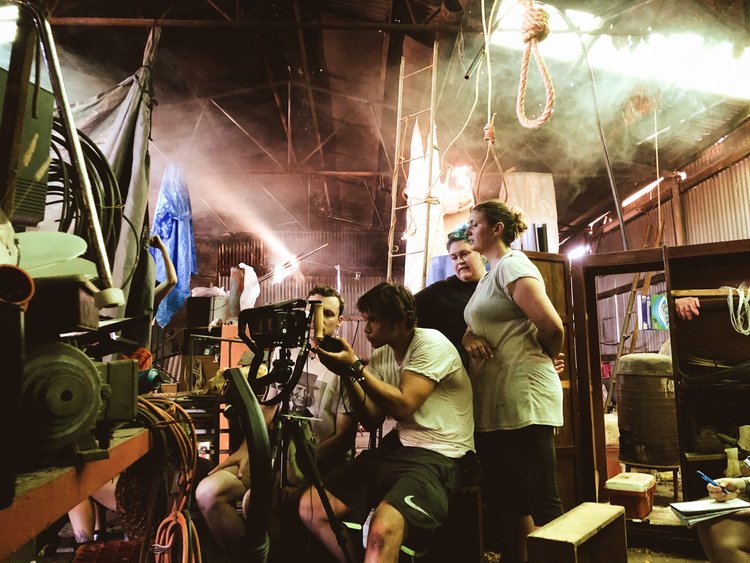

We didn’t have a lot of opportunities to build on that other than the dad’s sick and she’s beyond trying to help him. She’s yearning for a world that’s safer and has more human connection in it. So we didn’t have a lot of opportunities to build those elements out. But what we did was try to place some things in there that would build the world out in the audience’s mind.
One of the things which I really enjoyed was this is leaning into genre film territory quite a bit. And Australian cinema lately… the genre films are coming from the independent realm. The independent filmmakers are really being the ones who are pushing genre in a way that is maybe not being embraced by the mainstream producers or production companies, basically people with the money. What’s it like to be able to kind of explore genre in an independent realm for you?
It’s a great question. It’s what I want to do, it’s kind of all I want to do is tell genre stories. And, it’s really hard in Australia because, as you say, it’s hard to get funding. People don’t trust [that] genre films will do well in cinemas here. And yet they do so well internationally. The way our funding is sort of set up in this country, things have to do well in the cinema here for them to give the funding out, even though they might do well abroad. So it’s sort of a strange place to be if you’re a genre filmmaker. But that being said, horror films have always done well on a lower budget. And we make do with what we have. And sometimes you have to just get more creative, you just have to figure it out. And I’m always up for that challenge. I’m always up for it. I would rather have the money. But if not, then we’ll make it work some other way. Because I guess the other option is you don’t make the film which is not acceptable either.
Then the story is not told and I don’t get to see these great things that you do. What does being creative mean to you? When you say “get creative”, what does that mean to you on the set on the day where you’re like “I really want to get this shot but I don’t have the money or I don’t have the time”? What does that mean to you to be able to pivot on the spot like that?
I depend a lot on the crew around me as well as myself to sort of come up with these solutions. Because particularly a lot of people that I end up working with have actually more onset experience than I do, just because they’re usually working crew and I’ve managed to get them into a short that I’m working on. And meanwhile I’m a writer-director and the amount of time I’ve spent on a set is probably like a twentieth of what they spent on a set. Whenever something comes up, like we’ve hit a wall or we can’t figure out how to get around something or we have a challenge like we have one set of pig guts and you can do this take once. (laughs) And then you’re out of guts. You just have to figure it out.
I kind of relish those challenges. I think they’re all a part of the fun. And sometimes you end up as a result getting a shot that you never would have planned to do just because you talk it through with everybody and you realise that’s the way it has to be in this one instance. The other thing is I try not to say “Fix it in post” too muc because that becomes a nightmare. So as much as possible, for me, it’s like “Let’s try to do this now, let’s try and get it while we’re onset together and find a creative solution to make it happen.”
What was the most fun day on set for you for Evie?
It’s my favourite scene in the film as well. The day we spent inside the shed shooting the whole suspense sequence was so much fun. We had gotten access to this shed that belonged to Kate’s family, and it was just a big sort of grungy looking shed with lots of like light holes, holes in the tin with light pouring through, really dark in there. And we’d done a bunch of verge site collections and just picked up every piece of trash we could find, and filled this shed with little corridors of ways of winding your way through all the trash. And we set that up and first Evie did a run through it, then one of the men who was chasing her goes through it, and the dinosaur attacks in that space as well. So there’s a lot going on in that one little space. And in my head, I was like, “This is my opportunity to build a really solid suspense scene that feels a little bit like what you see in Alien and all these sorts of films.” I had so much fun with it, it was great. I’d love to do a lot more of that sort of stuff. Maybe with more time and a bigger budget. That’d be great.
It’s all there on screen as well, that suspense is tangible and it’s enjoyable. You get exactly what you want from this kind of film. It’s often really hard to do and it’s there, and it’s exciting.
Awesome.
It makes for a very memorable little short which is great. And I’m excited to see what you do going forward. With that in mind, what does it mean for you to be an Australian filmmaker? Is it telling these kinds of stories on an Australian landscape?
Yes, yes. The next film that I’m planning – actually, the next two films that I’ve been planning, both features, are all set in the Australian landscape. They are lower budget by necessity, and they take advantage of this beautiful countryside that we have in a similar way that Evie does. Who knows where the future will take me? But for the immediate future, that’s great. I’m looking forward to telling Australian horror stories. I think it’s gonna be a blast if I can get these up and running?
Very much so. I mean, I love horror. It’s a genre which I just absolutely lap up, and I love seeing what Australian filmmakers do with horror. Damian Power years ago did Killing Ground which is a film that is made with nothing, and it uses the Australian outback in a way where I’ve never seen it used this way before and it’s utterly terrifying. We look at the green or the dryness of the outback, and we think it’s very beautiful or it’s unsettling and stuff like that. And there is this foreboding nature about it. Nature can be scary. And that’s what I love about Evie as well is that it shows that the nature of human nature, the nature of nature itself, the animals and stuff is unsettling. It’s scary. I love it.
Yeah, it’s great. It’s primal, isn’t it? I mean it. Yeah, it fits on a bunch of levels which is fun to play with.
Flickerfest of course is so good. What’s that like for you now that your baby is out in the world? What’s it like knowing that this is now heading out into the world through film festivals?
It’s been so fun to watch it go to all these festivals. If it was a different year, I would have gone to half of them myself. I would have gotten a bunch of plane tickets. It happened to premiere at SITGES which is a festival that I’ve been trying to get into since I started making short films. I think I’ve entered maybe ten films into that festival. And finally, this film – Evie – the latest one gets in and I can’t go to the festival because of COVID. It killed me.
But I was happy that it was there. And it was an in-person festival. So , it played in front of good crowds and people who love horror and genre in general. So that’s exciting. And then Flickerfest as the Australian premiere is just a delight. This is my third film at Flickerfest but it’s the first time I’ve actually gone to the festival. I went to Bondi for a couple of days and watched the screening with the crowd there. And now it’s going to do the whole national tour element of it. It’s going to play in Perth, which is exciting. It’s great. It’s going to give people in Perth a chance to see the film, this thing I’ve been talking about on social media for a couple years. So it’s great.
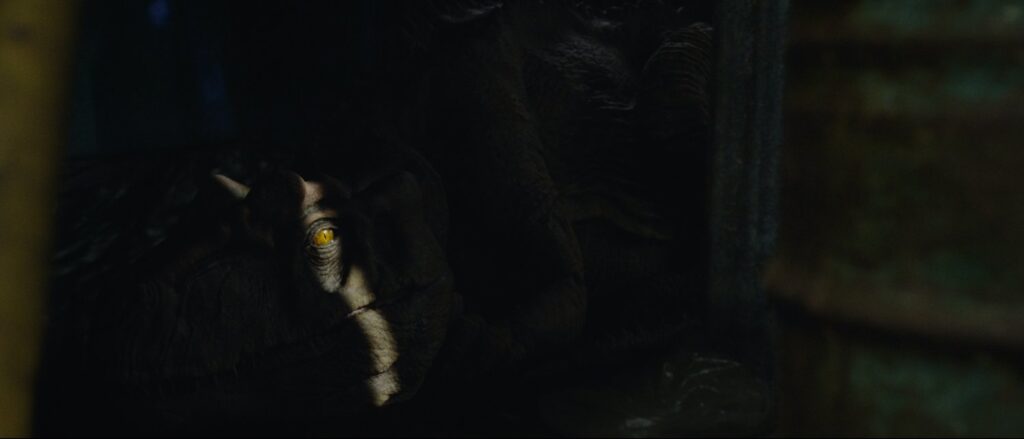

What’s it like working with Kate [Separovich]? What’s she like as a producer and as a friend on set and somebody who has so much experience and knowledge?
Kate’s great. She’s such a mover and shaker in terms of getting projects up and running. And she knows everybody in the industry, she’s always got like ten things on the go and has a great record of getting them up and getting them made. I think, in particular, a shoot with Kate is great, because she’s got a lot of experience as a production manager. So you’ve got a producer here who knows the shooting process inside and out, and so those sets are always wonderful.
The crew that she brings on are always wonderful, because she’s worked with most of them and so she knows who she wants to work with next. She introduced me to people like Meredith Lindsay who’s the cinematographer on this. She’s a massive talent, and I can’t wait to see what she does next. She brought Ben Wotton on, obviously. And overall, really fantastic crew. So we were lucky. And in this festival, she’s got another film that’s playing (Good Night). I think you talked today with David Vincent-Smith.
I did, yeah.
Yeah. So two shorts in one festival. That’s pretty excellent.
And they’re polar opposite films, they’re very, very different films. They’re both great and wonderful to watch. And I think that’s the thing about producing, it’s exciting to be able to see people who know how to bring the right skills, the right talent, to the right stories. And that’s what’s evident here in Evie, it’s evident in Good Night. And it’s evident in so much of what Kate’s done. It’s nice to see filmmakers – maybe you don’t usually recognise their work, because they’re not the director or anything like that. But it’s nice to be able to go, “I’m in safe hands, because this person had some kind of aspect of working on it.” And now it’s like a tangential thing, where it’s like “All right, Kate’s worked on this.”
And so I’ve sought it out because she’s worked on it. And then now I’ve seen your work. And I’m like, “Great, Alex worked on this.” And then it’s the roll-on effect. And as you were talking about with Meredith, it’s like “Cool, Meredith worked on this.” And now I’m going to seek out what she does in the future. It’s the knock-on effect which is so exciting because, as you’re saying, the visual beauty of Evie is all in the cinematography too, and I think it’s wonderful. I’m really excited to see what Meredith does going forward from here. I take it you’ll probably want to work with her again in the future.
I would love to work with her again. I’m actually Victoria now but one of these days it’s going to happen. She has been working on lot of TV shows like the second camera or the first camera assistant. It won’t be long until she’s a cinematographer on these projects more widely.
Well, congratulations on the film, Alex. It’s really good. I’m excited to see what you do with the feature as well. I want to see those kangaroos and dinosaurs running together. That’s all I want.
I know. That has to be in the trailer, it has to be!
Nothing says Australia more than kangaroos. This is the kind of thing that I would sit there… if I was much younger and have more time on my hands, I would be writing fanfiction about.
Awesome. I love that.
So much to be proud of. Congratulations to you. Congratulations to everybody else.
Thank you. Appreciate it.

